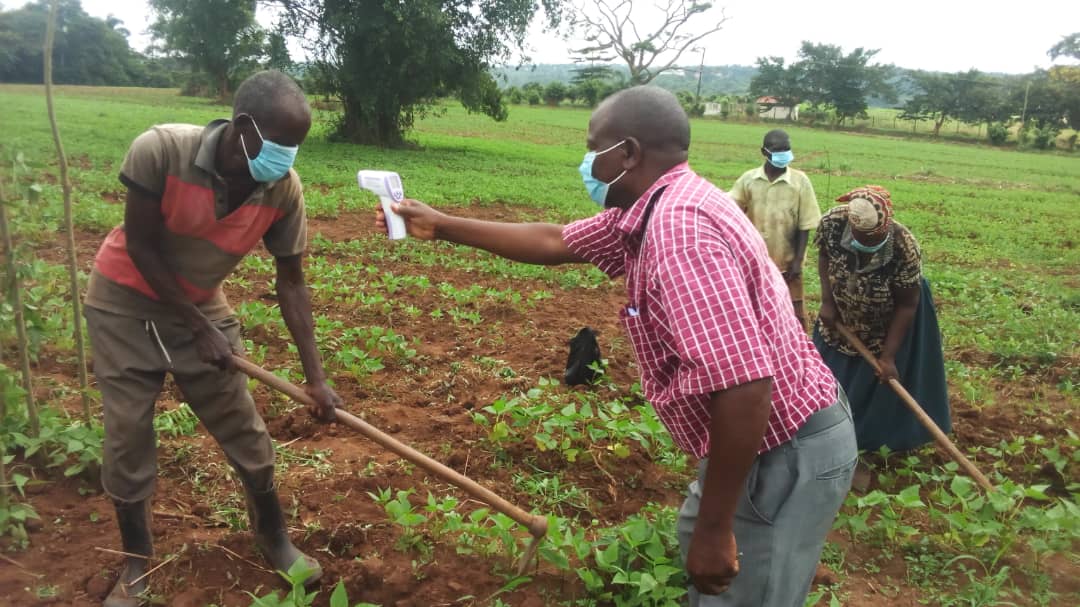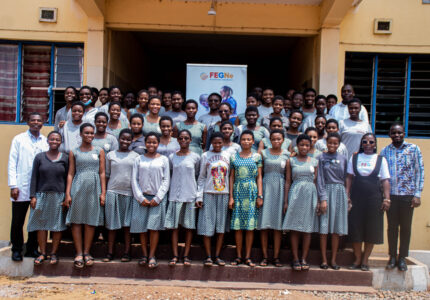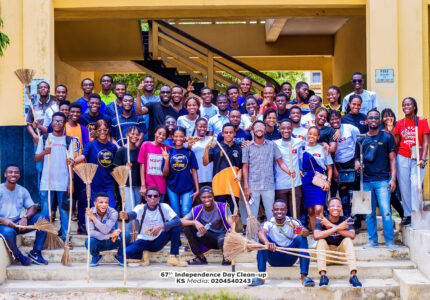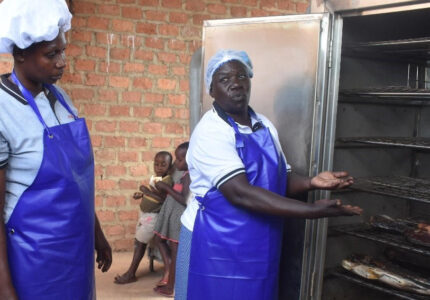As the novel COVID-19 ravaged nations, Uganda took early actions to limit the spread of the pandemic and its effect on the economy and livelihoods. The country has set trends in the East African region as far as managing the pandemic is concerned. However, the glaring economic slowdown is threatening the lives and livelihoods of the world’s most vulnerable people who depend on agriculture for food, feed and income.
As the country went into lockdown, the agricultural sector was somewhat listed among the essential services; operating amidst transport difficulties and other related restrictions. The situation has left critical arms of the sector such as research limping-on to mitigate the pandemic’s impact on food and nutrition security.
COVID-19 is an unprecedented challenge for agricultural research even for public institutions such as the National Crops Resource Research Institute (NaCRRI); its enormous research activities, large staff population and dependence on casual labor made the lockdown and other social distancing measures immensely disruptive.
Staff Safety amidst pandemic
NaCRRI recognized the precarious situation and responded quite aggressively. Early-on into the outbreak of the pandemic, the Institute adopted strategies highlighted in Presidential directives and guidelines from the Ministry of Health and Ministry of Agriculture. Among other measures, management suspended all on-station and out-station trainings to limit gatherings, suspended non-essential research activities such as surveys to minimize unnecessary exposure. We also instituted sanitization points in all buildings at the entrance and limited visitors to the Institute.

The institute has maintained essential skeletal staff at the premises to offer administrative support, sustain on-station trials, calls-on additional staff for on-field activities and rationalizes transport arrangements for staff who reside off-station. This greatly minimized physical interactions while effectively maintaining required momentum for critical activities. The following were guidelines issued to staff:
- We suspend all trainings both at the institute and out of station
- Suspend volunteers for one-month effective Monday to reduces non-essential staff but rest of use remain working normally as per guidelines.
- Suspend all learning tours to the institute by institutions including farmers groups and NGOs
- Limit meetings and any other gathering within the institute
- We understand this is planting time and many activities are time-bound but we advise staff to minimize non-urgent field trips and activities
- Inform intending foreign and local visitors to the institute and residents to postpone their visits to minimize our risk
- Limit golfers to only members for a period of one month and postpone any golf events including tournaments
- Avoid giving lifts to non-staff in the staff bus
- Practice hygiene as advised by the Health Ministry
Sustaining field and laboratory research activities
No doubt, COVID-19 has disrupted several activities in this quarter. A quick scan shows that movement restrictions and limited staffing affected harvesting and planting activities especially for cereals and pulses. In response to this, NaCRRI deployed a tailored strategy to enable the Institute continue its research endeavors.
Management prioritized field and laboratory activities with selected implementing teams. For instance, the Nutritional and Bioanalytical lab has maintained research experiments to salvage already accumulated samples and continued offering limited reference laboratory services for consumer products. Considering the limited number of staff vis-à-vis the work load, 3rd generation herbicides have come in handy especially for weeding trials.

To ensure smooth operations, teams were guided on prudent transport and up-country travel arrangements, accommodation and local government involvement. These were also provided with a cover letter in addition to an authorization from the Ministry of Agriculture. Further to this, Standard Operating Procedures (SOPs) for field activities were instituted. These include the use of temperature guns, sanitizers, face masks and maintaining social distancing while conducting field activities.
Through platforms such zoom and skype, research teams have been able to participate in virtual meetings with development partners for planning and reporting progress on various projects. The extra desk time created by the pandemic has also enabled scientists to engage more in scientific writing of journal articles and proposals.
Challenges and lessons learnt
Despite putting in place strategies to minimize the effects of the pandemic on research, NaCRRI has still experienced a number of challenges which have affected implementation and reporting timelines of several projects. For instance, mobility difficulties and the cut on staff numbers has brought student research activities to a complete halt. The Institute hosts over 20 PhDs and Masters for local and international students.
Limitations in transport arrangements has further increased the cost of moving staff to and from work while curfew restrictions have affected staff working hours. The ban on gatherings has affected training, dissemination and farmer participatory research exercises. This might disrupt timelines for near-release technologies. The lockdown on business has made it hard to access laboratory consumables. Reagents are getting depleted with no foreseeable opportunity to restock. This may limit efforts to continue some work in the laboratory.
Nonetheless, the Institute has picked some lessons working during this pandemic. The need to enhance the ICT infrastructure to effectively facilitate online engagements cannot be over emphasized. In addition to that, it is important to fully embrace digital data capture, management and sharing to minimize the need for human interaction. All this should be part and parcel of a contingency strategy developed with emergency measures to safeguard the Institute from future eventualities.

NaCRRI is a constituent institute of the National Agricultural Research Organization (NARO) mandated to conduct research on cereals, root crops, legumes, horticulture and oil palm. The institute was established in 1947 to conduct research on cotton for British Empire in Africa and India. The institute is now a major hub for crop technology generation and innovations that are spurring agricultural transformation, curbing food and nutrition insecurity, malnutrition, promoting agro-industrialization and commodity exports, and also contributing to the expansion of private sector players such as seed companies and millers.
By: Victoria Mbigidde, NARO.






